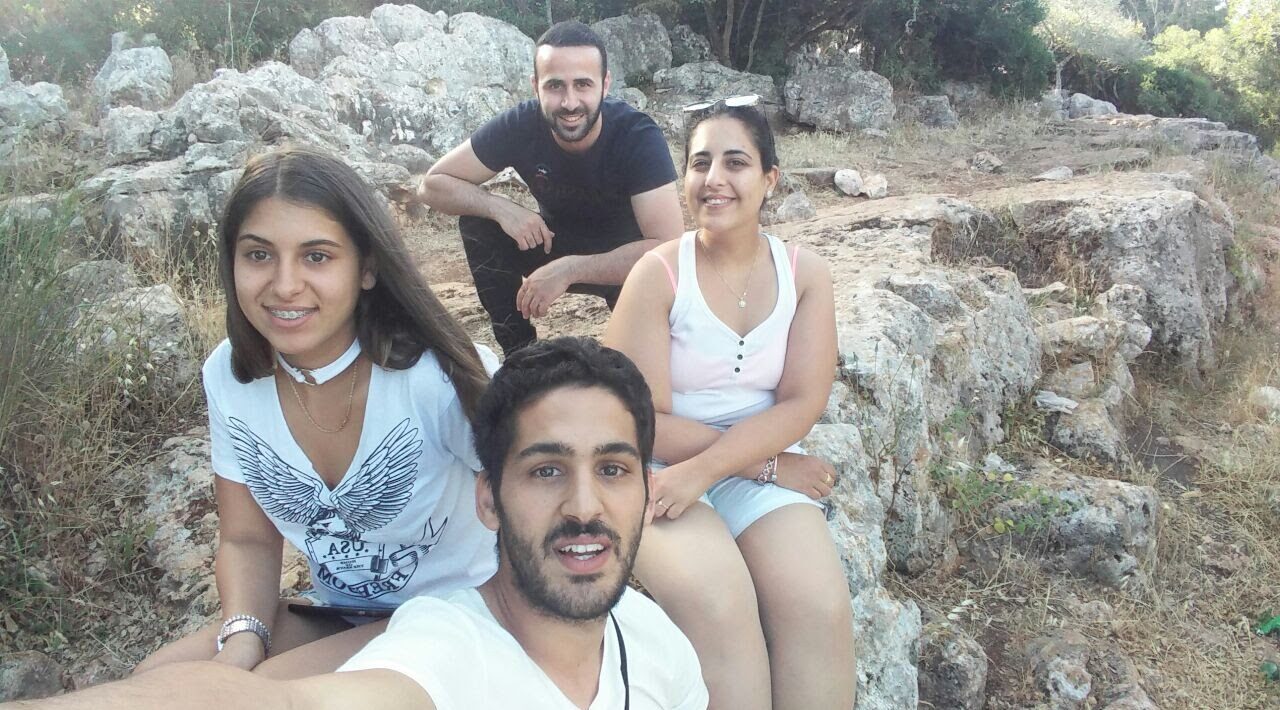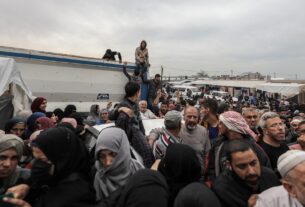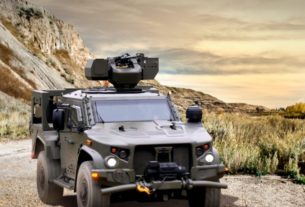PORAT, Israel — Eyal Golan sat at a table flanked by two citrus trees in his parents’ garden in the pastoral community of Porat – a makeshift office that has become, reluctantly, his command center. Here, he has conducted dozens of media interviews about his sister Shirel, who died by suicide at the family home on her 22nd birthday.
Shirel and her boyfriend Adi Gilad were among the thousands of festival goers who fled the Nova music festival as Hamas terrorists began massacring revelers on Oct. 7, 2023. Of around 4,000 attendees, 364 were killed and several dozen taken hostage to Gaza. Those who survived witnessed extreme violence, including rape and mutilation, and experienced intense trauma after waiting hours, in many cases, for rescue. The Golan family blames the government for not doing enough to prevent his sister’s death, which came after a battle with post-traumatic stress disorder.
Initially, Golan wrestled with keeping up the media blitz during shiva, the traditional Jewish mourning period, but his psychologist reassured him that by speaking out, he was channeling his grief into purpose.
“I will do everything to be her voice and the voice of her friends who are still living,” he said.
Those friends, by all accounts, are still struggling more than a year after Israel’s deadliest day. While viral reports of dozens of suicides among Nova survivors are unsubstantiated, survivors, their families and mental health advocates all say that Israel is facing a crisis when it comes to the mental health of those who made it out of Nova’s killing fields.
Family and friends attend the funeral service of Shirel Golan, survivor of the Nova Party massacre, in Tel Mond, Oct. 21, 2024. (Avshalom Sassoni/Flash90)
A Nova survivor who asked to be referred only by his initials G.N. said he was aware of “at least another three who are very likely going to commit suicide soon.”
“There are so many who are technically still alive but who basically died on Oct 7,” he said.
The government initially offered 12 therapy sessions for Nova survivors, later increasing it to 48 after SafeHeart — a group formed by volunteer therapists after the Oct. 7 attack that has treated more than 3,000 survivors — lobbied, and said that even 48 sessions “falls short of what is truly needed.”
In a statement issued after Shirel Golan’s death, SafeHeart called for Israeli authorities to do more. “Shirel’s family is right — the government must step up and do more,” it said.
Shirel Golan was hospitalized twice because of her PTSD symptoms. But two months before her death, she stopped leaving the house, refused to seek treatment and, in the days before, “clammed up completely,” her brother said.
Golan warned that without additional and timely mental health support, those affected by the Oct. 7 attack risk becoming another “lost generation” — a generation scarred by war and plagued by widespread disillusionment and a sense of existential loss.
“We saw what happened because of Germany’s lost generation after World War I. It resulted in the worst calamity to befall the Jewish people,” he said.
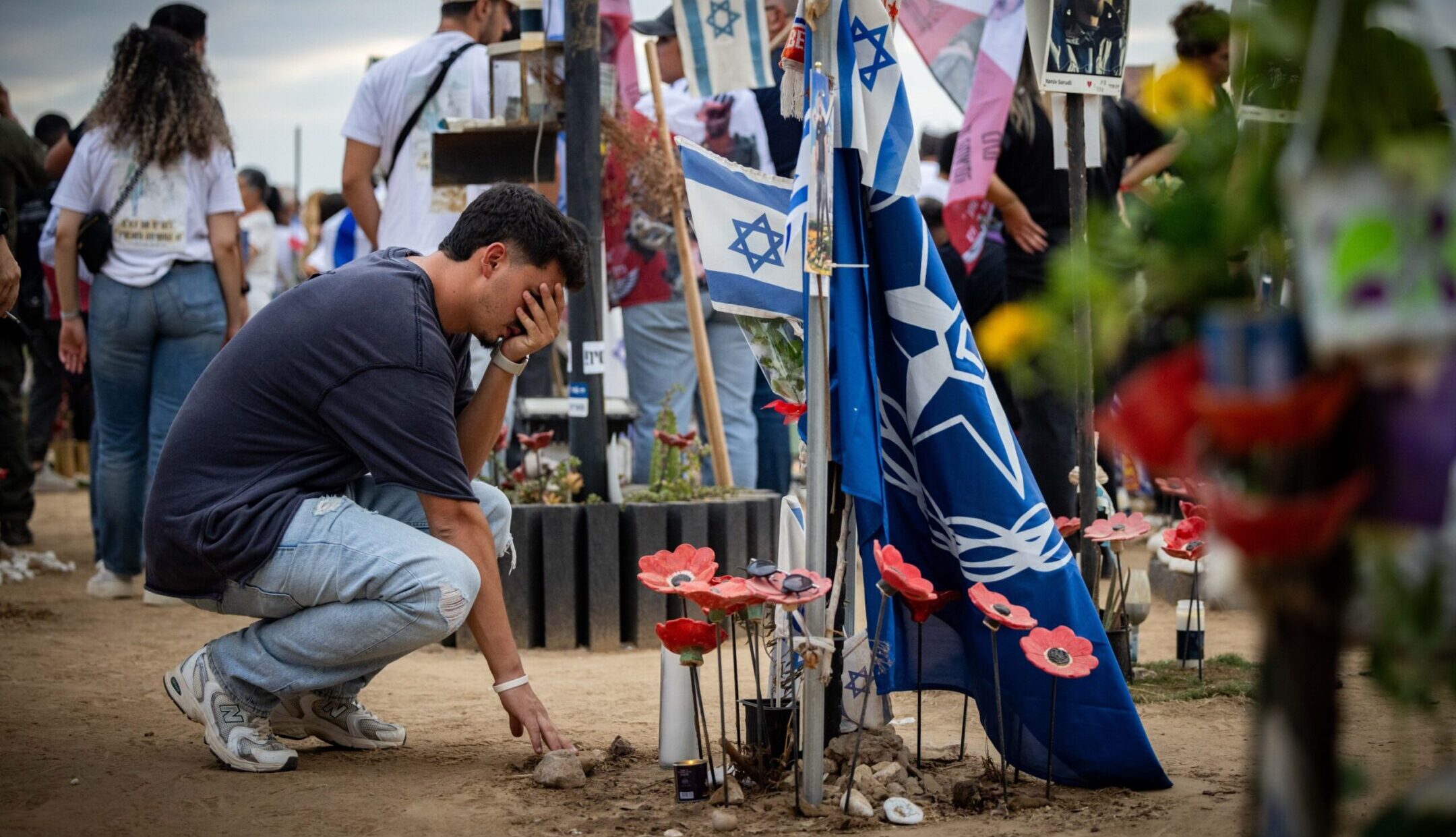
Friends and family of the victims of the Nova music festival massacre gather at the site of the massacre in southern Israel one year after the attack, Oct. 7, 2024. (Yonatan Sindel/Flash90)
Golan said many family members of Nova survivors have expressed a fear of leaving their children unattended, worried they may attempt suicide. “I have heard countless parents tell me that they can’t leave their child alone for one second, because the treatment they’re getting is just not enough.”
Golan claimed that there had been several suicides among the Nova community, citing one estimate that his sister’s had been the 53rd. In Knesset hearing in April, Nova survivor Guy Ben Shimon made similar allegations, saying that as of February, there were “almost 50 suicides among the Nova survivors” and adding that the number had likely since increased.
But the number was fiercely contested by health ministry officials at the same hearing, with Gilad Bodenheimer, director of the ministry’s mental health division, saying they knew of “only a few cases of suicide.” The ministry also told the Haaretz newspaper that based on its records, Shirel’s death is the only confirmed case of suicide among Nova survivors to date.
Neither Bodenheimer nor the health ministry responded to requests for comment on the discrepancies between Bodenheimer’s estimate of several suicides, the health ministry’s claim of only one, and the second-hand accounts from some members of the Nova community.
“It’s in the government’s interest to keep the number of suicides quiet, they don’t want it to spread,” said Daniel Sharabi, a Nova survivor who saved dozens of lives at the rave by administering first aid and firing at terrorists from an abandoned tank and since has launched a nonprofit to support his fellow survivors. Sharabi said a member of a parents’ group for Nova survivors had told him there had been “tens of cases” of suicide but said he was not personally aware of any.
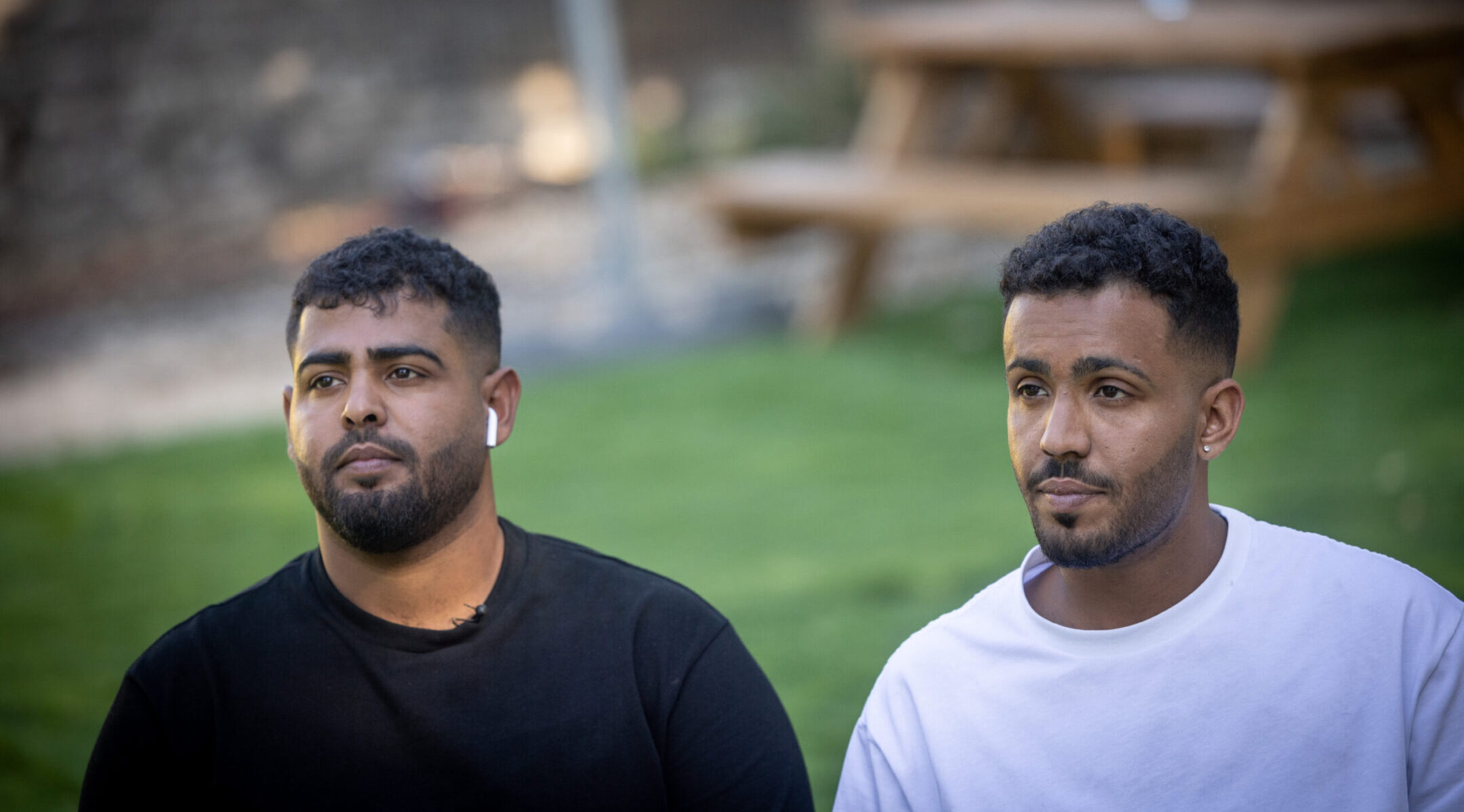
Brothers Daniel and Neria Sharabi, who saved lives at the Oct. 7, 2023, Nova massacre launched an organization to help fellow survivors, Mount Herzl in Jerusalem, May 8, 2024. (Chaim Goldberg/Flash90)
Efrat Atun, CEO of SafeHeart, said she did not know of more suicides apart from Shirel’s. At a hearing at the Knesset earlier this month, she censured one lawmaker for saying that there were more than 10 suicides in the Nova community, calling it “irresponsible.”
At the same hearing, the health ministry and the social welfare ministry warned that there were at least 30 Nova survivors deemed as very high risk for suicide. More than a hundred were currently hospitalized in mental health institutions, the ministries said, but Atun said the number was closer to 150.
Mark Weiser, director of the psychiatric division at Sheba Medical Center, who has researched Nova survivors, cautions against oversimplifying suicide — which he describes as “rare and multifactorial” — by attributing it to a single traumatic event.
He explained that with around 4,000 people who attended the Nova party, it’s reasonable to expect that several hundred will be significantly affected by trauma. Of those, about 5% — or roughly 200 individuals — may struggle the most, a figure that aligns with what is typically seen in trauma survivors.
“If several of that 5% are suicidal and are doing too much alochol and drugs because they’re having difficulty dealing with these issues, those are numbers that make sense,” he said.
Defining PTSD numbers in the general population is challenging, with findings varying widely. One study estimated that over half a million Israelis are at risk of developing PTSD, while another put the number at 30,000. Data from the immediate aftermath of traumatic events offer insights about what can be expected over time. For example, following 9/11, high percentages of New Yorkers exhibited post-traumatic symptoms. Similarly, a study published in The Lancet’s EClinicalMedicine found that the prevalence of PTSD and depression among all Israelis in the weeks following Oct. 7 nearly doubled compared to figures recorded two months before the attack.
According to Weiser, psychiatry allows for different interpretations of trauma: for instance, while one perspective can hold that while a single traumatic event is harmful, repeated exposure may lead to desensitization, another may argue that repeated stress is actually more damaging than a single traumatic experience.
“I can interpret everything one way and then flip it the exact other way. But if you’re asking my opinion, the first is true,” he said. “The first time there was an air raid siren, it was really quite frightening. But after the 12th time, you move on.”
While he did not downplay the tremendous strain on the healthcare system, citing soaring numbers of Israelis seeking psychological treatment and prescriptions for anti-anxiety medications, Weiser stressed that most Israelis, including survivors themselves, overcome the trauma.
“The majority of people who experience severe stressors adapt. We’re hardwired to,” he said.
Atun rejected comparisons to 9/11, because the events in Israel were ongoing. “This isn’t an event that happened and ended, it’s not like a terror attack where a bus explodes and then it’s over,” she said. “It’s very difficult to measure how many are traumatized, because people are still in Oct. 7. There are still hostages, there are missiles, there is war.”
But she said she disagreed with the idea that PTSD was decreasing over time, noting that in recent months, SafeHeart had experienced a “huge surge” in referrals, starting with the execution of six hostages — five of whom were Nova survivors — and continuing through a two-month period of Oct. 7-related anniversaries, yahrzeits, and memorial days.
“The cases are getting increasingly worse,” Atun said.
A video of Shirel’s friend, Yael Tobol, went viral on social media after she claimed that she “might be the next case” of suicide. Tobol told the Kan public broadcaster that she had tried to be hospitalized but was rejected.
G.N., meanwhile, has been volunteering with the group founded by Daniel Sharabi and his brother Neria, also a Nova survivor.
Sharabi, whose best friend Yosef Haim Ohana was kidnapped at the festival and is still a hostage in Gaza, said he was inspired to set up the nonprofit, called A Future for the Survivors and the Wounded, after another close friend attempted suicide.
The nonprofit, which is staffed by 70 volunteers, has supported the mental recovery of more than 700 Nova survivors with a range of mental health, economic, and social services, including trauma counseling, financial aid, community-building activities and aiding reentry into the workforce.
Sharabi described how many survivors’ lives had unraveled, leaving them without structure, hope, or the ability to cope with constant triggers and uncertainty about the future — a struggle which in many cases is compounded by drug use, intensifying the feelings of dissociation and despair. “Drugs — especially psychedelics — can create a huge mess in the recovery process,” he said. “You need to be a stable and healthy person to do them. Healing like this should be done while clean of drugs, because they just amplify everything.”
The exception, Sharabi noted, is in a controlled clinical setting, where psychedelics have been shown to have a potentially palliative effect on trauma. Sharabi hopes to partner with trauma specialists to offer ketamine-assisted therapy to add to the other trauma therapies — including EMDR — his group already offers.
Hundreds of survivors of the Oct. 7 attacks, including Nova survivors, are also slated to participate in a clinical trial using MDMA-assisted psychotherapy in Weiser’s division at Sheba Medical Center.
Sharabi said he and his brother had “found our life’s mission” with the nonprofit. But while he left his job at Israel’s defense ministry to dedicate himself to it full-time, he recently made the decision to begin his undergraduate studies at an Israeli university.
“I felt I needed something else, to break away from the constant focus on trauma. Because if you get too wrapped up in it, you risk losing yourself entirely,” he said.
The Tribe of Nova Foundation, founded by organizers of the Nova festival, likewise supports survivors and their families, offering mental health services, therapeutic workshops and other weekly community events that provide a space for healing through shared experiences.
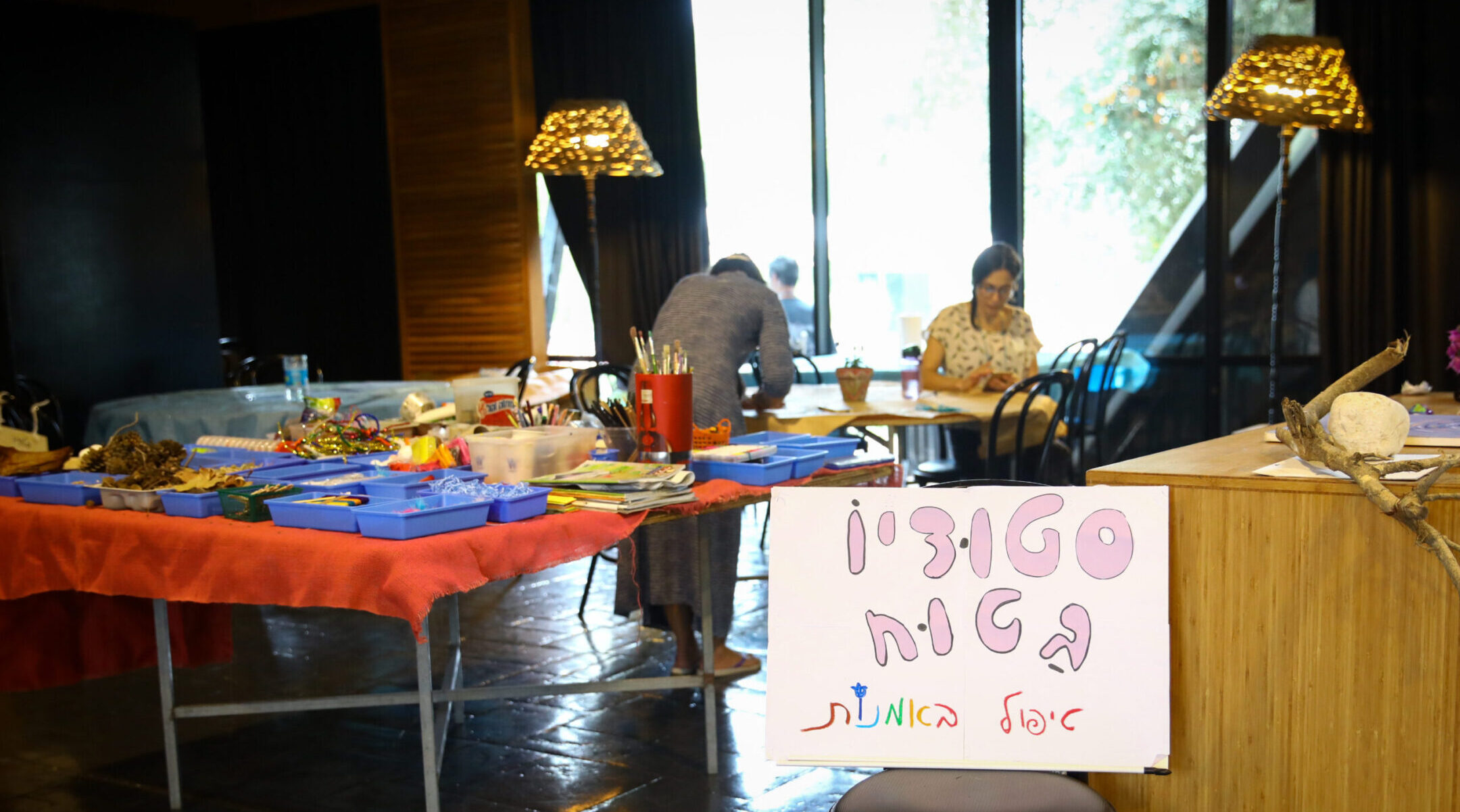
Ronit Farm temporarily became an impromptu healing center survivors of the Nova massacre. Here, art therapy is on offer, Oct. 27, 2023. (Aloni Mor/Flash90)
Co-founder Raz Malka explained that the nonprofit arose from two core realizations: that only survivors could fully understand one another’s trauma, and that the authorities were simply unprepared for the scale of new victims needing care.
“I don’t blame the state. There are just too many people who need help, and even if there was no lack of budget, there just aren’t enough professionals,” he said. “We’re working around the clock and it’s still not enough. You help one person and another three appear.”
Malka said he did not personally know of anyone who had committed suicide.
Some survivors have chosen to shun conventional psychological treatments. Tribe of Nova, for example, has a dedicated sports department offering everything from horseback riding to basketball and ping pong.
“Before we started the sports department, there were survivors who hadn’t left their homes for months,” Malka said. “With such a large and diverse group, we need as many solutions as possible.”
Earlier this month, the foundation’s soccer team competed in a tournament against teams from other struggling groups, including the devastated kibbutzim, wounded soldiers, and displaced northerners.
Others prefer to seek support and grounding through spiritual avenues. At a recent retreat organized by the haredi Orthodox outreach group Kesher Yehudi, held over Simchat Torah — the date also marking the one-year Hebrew anniversary of Oct. 7 — Osher Daniel said she gathered the most strength from her connection to God.
“More than faith in God, it’s having the faith that he exists in each of us and acting on that,” she said.
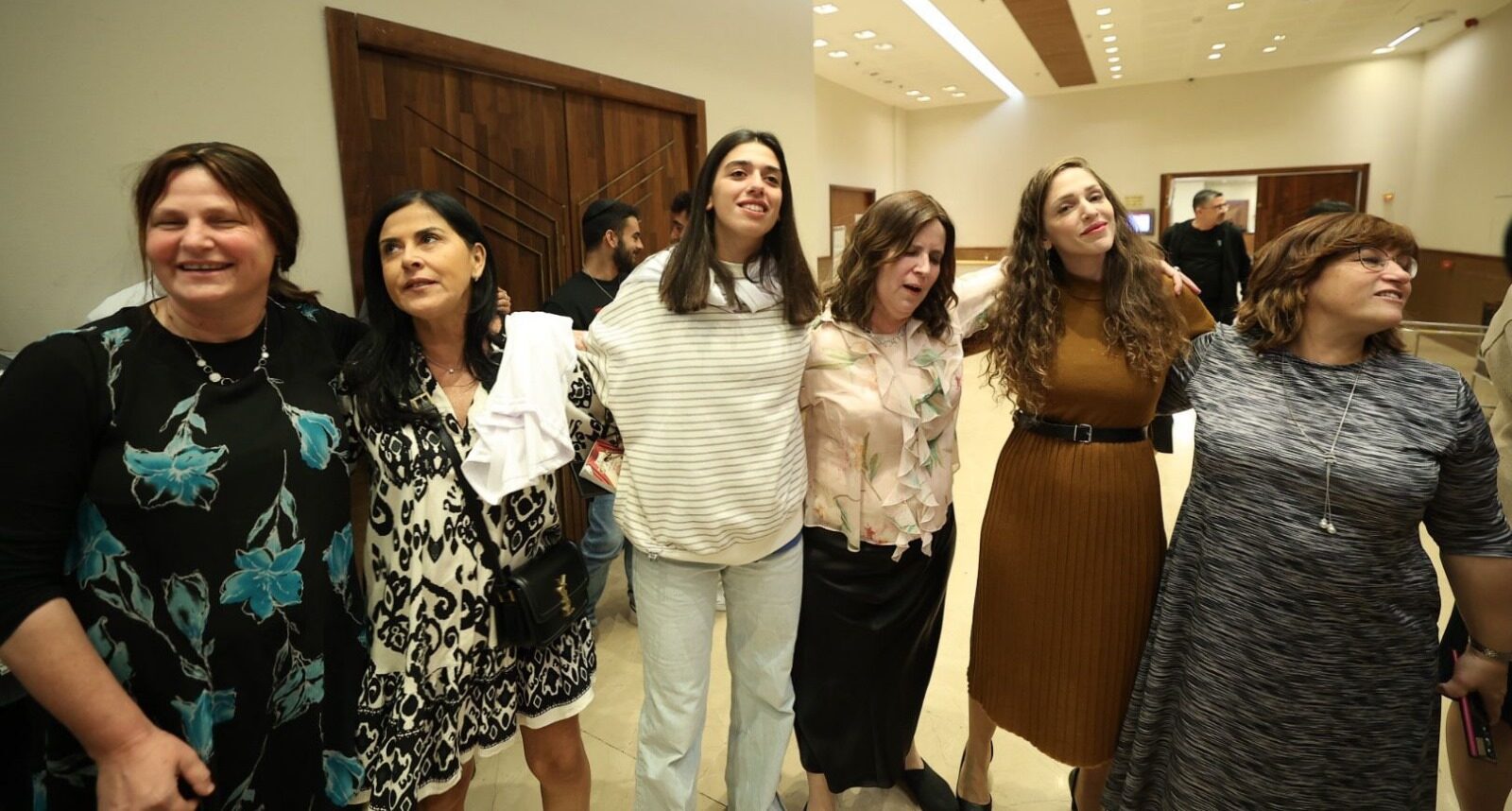
Osher Daniel and Tzili Schneider, at center, participated in a Shabbat retreat for Nova survivors in September 2024. (Deborah Danan)
Kesher Yehudi’s founder and CEO, Tzili Schneider, emphasizes, however, that the group’s mission is not therapeutic. “We are not therapists or social workers, and we don’t profess to have expertise in PTSD or to treat it.” she said. “We empathize — the whole country is traumatized on some level — we offer compassion, love and togetherness. The Nova survivors tell us often that this helps them, that it helps with their healing process, which is wonderful.”
Osher Daniel, too, has started her own project pairing Nova survivors with one another to commit to weekly phone calls for mutual support. “Who knows if just by simply checking in, we might prevent someone from, God forbid, taking their own life?”
Her mission echoes that of Eyal Golan, who, from his garden office, pledged to honor his sister’s memory by raising awareness to prevent more loss among the Nova community. “If I manage to save just one of them, I’ve done enough,” he said.
Support the Jewish Telegraphic Agency
Help ensure Jewish news remains accessible to all. Your donation to the Jewish Telegraphic Agency powers the trusted journalism that has connected Jewish communities worldwide for more than 100 years. With your help, (JEWISH REVIEW) can continue to deliver vital news and insights. Donate today.

